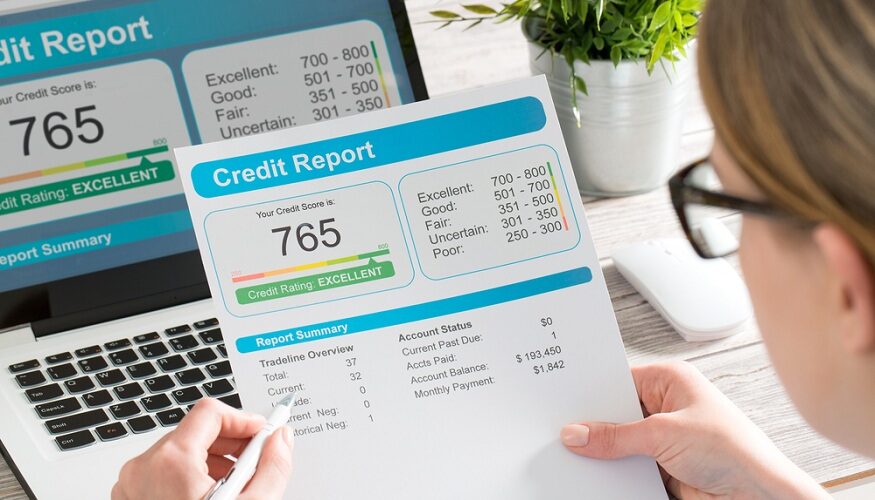Credit checks are a fundamental part of the financial landscape, influencing everything from loan approvals to tenancy applications. Yet, despite their prevalence, a cloud of misinformation often surrounds them. This article aims to dispel common misconceptions about credit checks, empowering you with the knowledge to navigate the world of credit with confidence.
Myth 1: Checking your credit score will hurt it.
This is a common misconception globally. The truth is, there are two types of credit inquiries: “hard” and “soft.” A hard inquiry occurs when a lender checks your credit when you apply for credit, such as a personal loan, credit card, or mortgage. These inquiries can slightly lower your score, especially if you have multiple hard inquiries in a short period. However, a soft inquiry happens when you check your own credit report or score, or when a company checks your credit for non-lending purposes (like pre-approvals or tenancy checks). Soft inquiries do not affect your credit score. You can check your own credit report through providers like Equifax and Centrix without impacting your score.
Myth 2: You only have one credit score.
Like elsewhere, you have multiple credit scores. While the most commonly used scores are provided by credit reporting agencies like Equifax and Centrix, different lenders may use slightly different scoring models or weigh the factors differently. This means your score might vary slightly depending on who is checking it and which bureau they are using.
Myth 3: Income determines your credit score.
While income is a factor lenders consider when evaluating your creditworthiness, it does not directly impact your credit score itself. Credit scores are primarily based on your credit history, including payment history, amounts owed, length of credit history, credit mix, and new credit. Someone with a lower income but excellent credit management can have a higher score than someone with a high income but poor credit habits. Lenders will consider income as part of their overall assessment of affordability, but it’s separate from your credit score.
Myth 4: Closing old credit accounts will improve your score.
This can have the opposite effect. Closing older accounts, especially those with a positive payment history, can shorten your credit history and increase your credit utilisation ratio (the amount of credit you’re using compared to your total available credit). Both of these factors can negatively impact your score. It’s generally better to keep old accounts open, even if you don’t use them regularly, as long as they don’t have annual fees.
Myth 5: You need a credit card to build credit.
While credit cards are a common way to build credit, they are not the only way. Other forms of credit, such as personal loans, car loans, and even some store credit arrangements, can be reported to credit bureaus and contribute to your credit history. Even paying your bills on time (utilities, phone, internet) can sometimes positively influence your creditworthiness, although it’s not always directly reflected in your credit score.
Myth 6: Credit scores are set in stone.
Your credit score is a dynamic reflection of your credit behaviour, just as it is elsewhere. It can improve over time with responsible credit management, such as paying bills on time, keeping credit utilisation low, and avoiding excessive new credit applications. Conversely, missed payments, defaults, or high debt can lower your score.
Myth 7: Checking your credit report is a waste of time.
Regularly reviewing your credit report is crucial for identifying errors, inaccuracies, or signs of identity theft. You can access your credit reports from Equifax and Centrix. Taking advantage of this can help you catch potential problems early and take steps to correct them. Inaccurate information on your credit report can negatively affect your ability to get loans or other forms of credit.
Myth 8: A business credit report is the same as a personal credit report.
Business credit reports and personal credit reports are distinct. A business credit report provides information about a company’s financial health and creditworthiness. It includes details such as the company’s payment history, credit scores, legal filings, and industry comparisons. Lenders, suppliers, and other businesses use business credit reports to assess the risk of extending credit or doing business with a company. Personal credit reports, on the other hand, focus on an individual’s credit history and are used for personal lending decisions. Businesses can access credit information through agencies like Equifax and Centrix.
Myth 9: You can only get a credit report if you’ve applied for credit.
You can access your credit reports even if you haven’t applied for credit recently. You can request a copy of your credit report from each of the major credit bureaus, Equifax and Centrix, directly.
Myth 10: Credit checks are only for loans and credit cards.
While credit checks are commonly used for lending decisions, they are also used for other purposes, such as:
- Tenancy Applications: Landlords and property managers routinely check credit reports as part of the tenant selection process.
- Employment: Some employers may check your credit report as part of the hiring process, particularly for positions that involve handling finances or sensitive information.
- Insurance: Some insurance companies may use credit information to determine premiums.
- Telecommunications and Utilities: These providers may also check your credit when you sign up for services.
Understanding the truth about credit checks is essential for managing your financial health. By dispelling these common myths, you can make informed decisions about your credit and avoid potential pitfalls. Remember to regularly monitor your credit reports, practice responsible credit habits, and seek professional advice if you have any questions or concerns.

